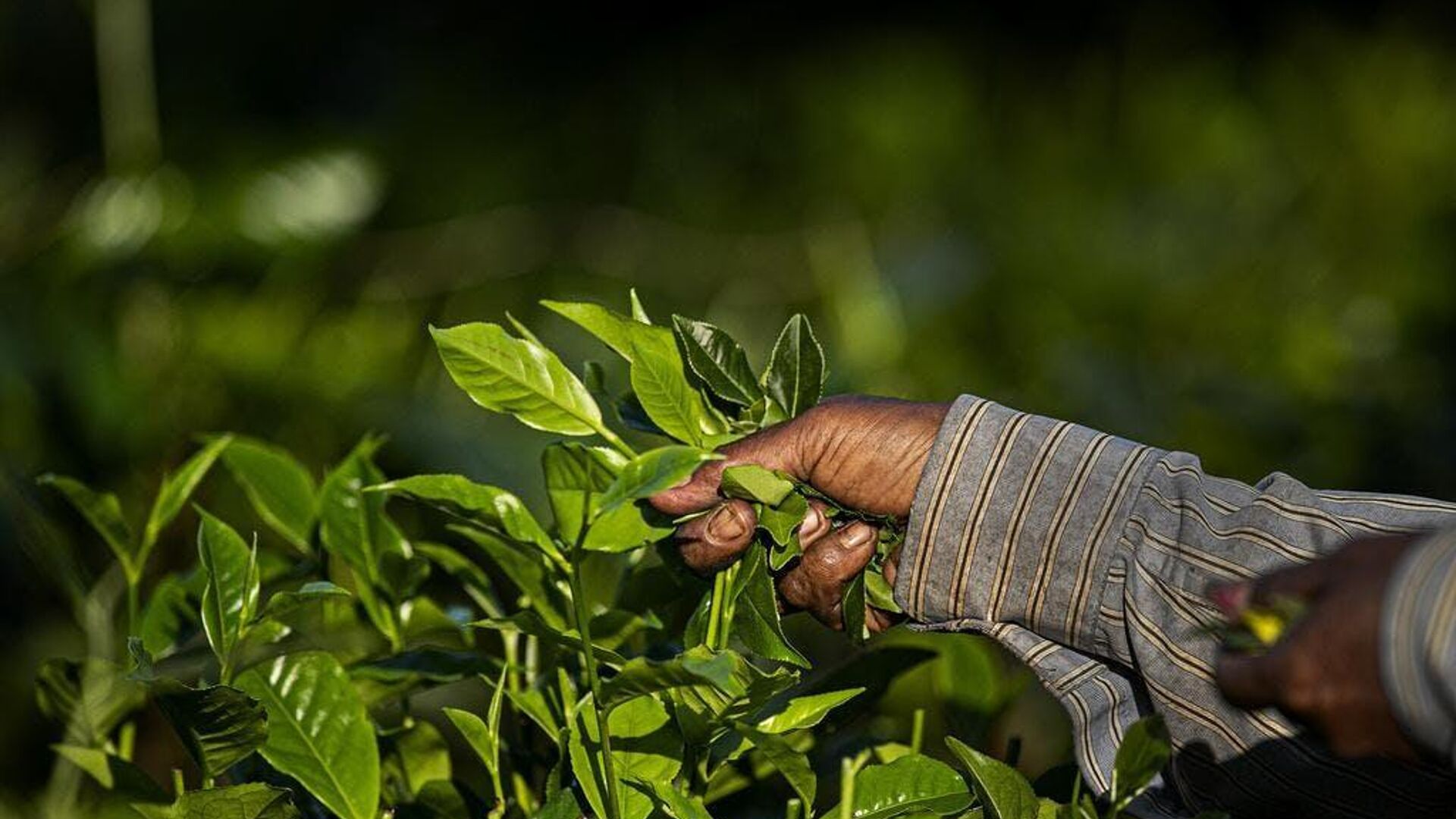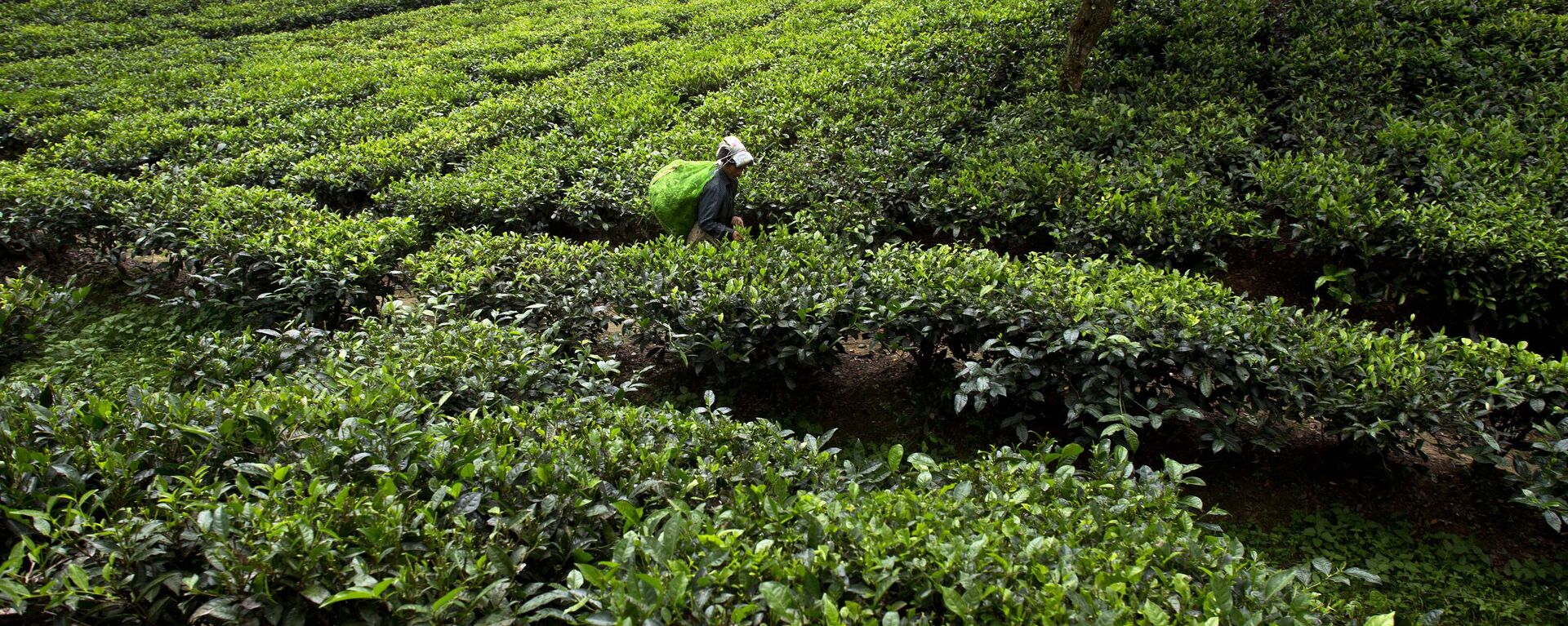https://sputniknews.in/20230916/revolutionary-indian-technology-transforms-tea-waste-into-valuable-components--4283718.html
Revolutionary Indian Technology Transforms Tea Waste into Valuable Components
Revolutionary Indian Technology Transforms Tea Waste into Valuable Components
Sputnik India
Sputnik India spoke to Dr. Mihir Kumar Purkait, a professor at the Department of Chemical Engineering, IIT Guwahati, and his team, who found a formula to... 16.09.2023, Sputnik India
2023-09-16T16:17+0530
2023-09-16T16:17+0530
2023-09-16T15:58+0530
assam
science & tech
india
health
sputnik exclusives
tea
tea plantations
global supply chains
global economy
south asia
https://cdn1.img.sputniknews.in/img/07e7/05/15/2082434_0:50:1025:626_1920x0_80_0_0_9216fa569e8bca935a56538b92ea07d4.jpg
A revolutionary breakthrough in the medicine and food industry is imminent, thanks to a decade-long study on the numerous tea waste byproducts.Tea is one of the world's most popular beverages, with global tea consumption reaching 6.6 million tons and expected to grow in the coming years.Researchers at the Indian Institute of Technology Guwahati in Assam, India, have creatively responded to the surging demand for tea. They have meticulously crafted a revolutionary formula that enables tea growers to repurpose tea waste into valuable components.Global tea production is estimated to be around 6.6 million tons, with China leading the way by producing 40% of the total output. Following closely is India, contributing 23% to the global production. Kenya accounts for 10% of the production, leaving the remaining 27% to the rest of the world. In India, Assam itself produces 52% of the total product, followed by West Bengal and Kerala.The professor added, "We have published and patented these developed technologies, and we have also measured pharmaceutical grade activated carbon from tea waste, which can be used in a variety of pharmaceutical products as well as food products. In addition, we have been able to extend the shelf life of vegetable and fruit juices by two years using green tea".The professor also added that work is already underway to apply the technology on a production scale.
https://sputniknews.in/20230425/india-can-become-enduring-supplier-of-food-products-to-russia-indian-business-delegation-head-1687359.html
assam
india
south asia
Sputnik India
feedback.hindi@sputniknews.com
+74956456601
MIA „Rossiya Segodnya“
2023
Sputnik India
feedback.hindi@sputniknews.com
+74956456601
MIA „Rossiya Segodnya“
News
en_IN
Sputnik India
feedback.hindi@sputniknews.com
+74956456601
MIA „Rossiya Segodnya“
IIT Guwahati researchers team
Sputnik India
IIT Guwahati researchers team
2023-09-16T16:17+0530
true
PT0M24S
Sputnik India
feedback.hindi@sputniknews.com
+74956456601
MIA „Rossiya Segodnya“
assam, science & tech, india, health, tea, tea plantations, global supply chains, global economy, south asia
assam, science & tech, india, health, tea, tea plantations, global supply chains, global economy, south asia
Revolutionary Indian Technology Transforms Tea Waste into Valuable Components
Sputnik India spoke to Dr. Mihir Kumar Purkait, a professor at the Department of Chemical Engineering, IIT Guwahati, and his team, who found a formula to extract drugs and chemicals from tea waste.
A revolutionary breakthrough in the medicine and food industry is imminent, thanks to a decade-long study on the numerous tea waste byproducts.
Tea is one of the world's most popular beverages, with global tea
consumption reaching 6.6 million tons and expected to grow in the coming years.
Researchers at the Indian Institute of Technology Guwahati in Assam, India, have creatively responded to the surging demand for tea. They have meticulously crafted a
revolutionary formula that enables tea growers to repurpose tea waste into valuable components.
Global tea production is estimated to be around 6.6 million tons, with China leading the way by producing 40% of the total output. Following closely is India, contributing 23% to the global production. Kenya accounts for 10% of the production, leaving the remaining 27% to the rest of the world. In India, Assam itself produces 52% of the total product, followed by West Bengal and Kerala.
“Typically, a large quantity of tea is grown in India and about 28 million kg of tea waste is generated in its production. Tea waste contains about 30% polyphenolic components, 20% of various types of cellulosic components and 20% lignin. We developed the technology to extract all the polyphenolic compounds, including catechins, which are in high demand in a variety of health supplements, tablets, capsules, etc.,” Professor Purkait told Sputnik India.
The professor added, "We have published and patented these developed technologies, and we have also measured pharmaceutical grade activated carbon from tea waste, which can be used in a variety of pharmaceutical products as well as
food products. In addition, we have been able to extend the shelf life of vegetable and fruit juices by two years using green tea".
The professor also added that work is already underway to apply the technology on a production scale.
“Many companies are also coming to us from North-Eastern states and this technology will definitely boost the rural economy and will also be helpful for the Act East policy and biotechnology of the Government of Assam and India,” Professor Mihir Kumar Purkait told Sputnik India.


